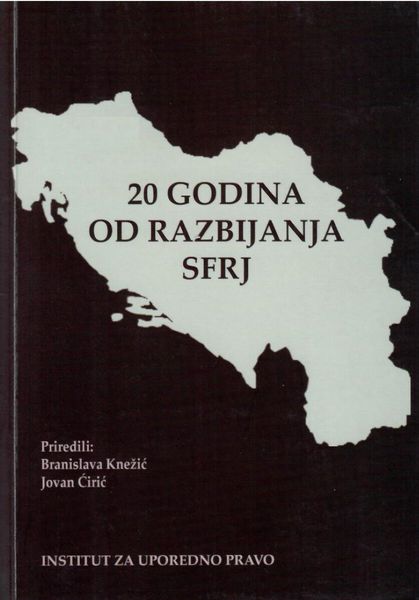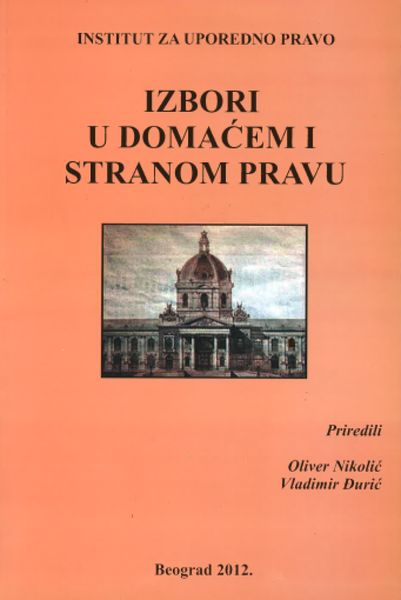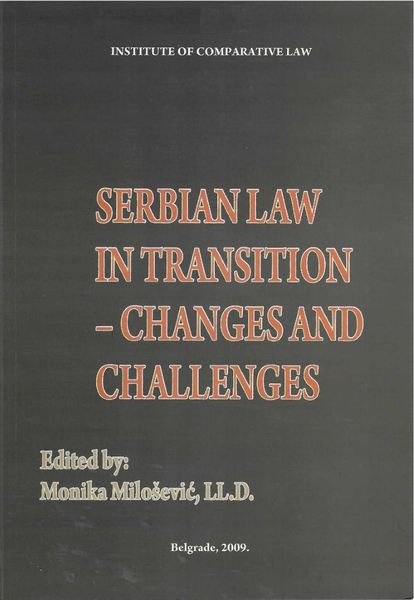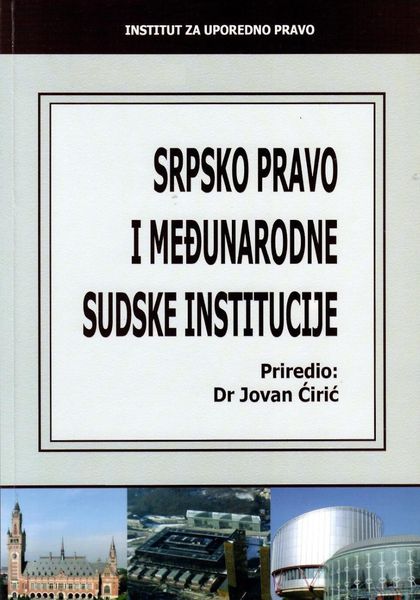
We kindly inform you that, as long as the subject affiliation of our 300.000+ articles is in progress, you might get unsufficient or no results on your third level or second level search. In this case, please broaden your search criteria.



Considering such agitation against East-West contact by the Soviet general secretary Leonid Brezhnev over the unrest in Czechoslovakia,Brezhnev’s strong advocacy of trade with the West in his efforts to clinch a deal in the context of the Conference on Security and Cooperation seems all the more remarkable. Such vacillations between political confrontation and pro-trade approaches were not Brezhnev’s alone, but played out in Western capitals as well, and speak to the amorphous balance sheet trade with an adversary can have on a country’s foreign policy.
More...
The question of what East-West détente has meant for middle-sized powers within the Atlantic Alliance in particular remains an open chapter in the history of the Cold War.This chapter analyzes the differences between the détente policies of the government and that of the Italian Communist Party (PCI), from the economic Ostpolitik of the former in the 1960s, championed by both the Christian Democracy Party (DC) and the Italian Socialist Party (PSI), to the ideological challenge of the latter in the 1970s, which eventually culminated in political confrontation between the PCI and Moscow in the1980s.
More...
The lack of substantial U.S. détente policy in 1979 and 1980, and the external pressure of the crisis of East-West relations, forged a certain convergence of views between Paris, Bonn, and London, not only on Cold War issues but also on the development of European integration and the European role at the international arena. A concrete result was a temporary coordination of détente policies during the peak of this crisis of international relations and especially during the transition-period between the Carter and the Reagan administrations. Even if there was no direct impact of Cold War tensions on the European integration process as in the 1950s,the initiatives for deepening the political integration since the mid-1980scan well be interpreted as a result of this rather short intermezzo of intense European policy coordination efforts. The idea of a common Franco-German Ostpolitik, however, a French political purpose since 1963, had to remain an illusion only. At the end of the Cold War, the fundamental differences between France and the FRG with regard to the underlying concepts and objectives of détente in Europe became fully clear once again,as the numerous misunderstandings during the process of Germany’s reunification in 1989/90 bore out
More...
There is strong evidence that elements of the Lyndon B. Johnson administration’s bridge-building policies toward the Eastern bloc between 1963and 1966 were largely crafted as a response to the early European East-West détente efforts. Primarily, the Johnson administration’s détente policies were about stabilizing the military relationship between the United States and the Soviet Union, as well as influencing and facilitating political developments in Eastern Europe in order to transform the sociopolitical systems in the East; however, U.S. détente policies were also about accommodating the West European allies’ aspirations and demands for more equality in the alliance and a move toward a joint transatlantic détente effort with the East. The latter perspective is unfolded in this chapter. While West European aspirations and interests were diverse, the Johnson administration’s response was about aligning those aspirations to those of the United States and about preserving the cohesion of the alliance.In effect, this effort resulted in a substantial West European influence on the Johnson administration’s bridge-building policies from 1963to 1966
More...
Détente seemed to prolong the division of Europe. It seemed to be un-American. From the perspective of its many critics, détente allowed for the Soviet Union’s strategic buildup in the 1970s and it precipitated America’s decline in the wake of Vietnam. Even worse, by preaching moral equivalence between Communism and Western democracy, détente allegedly made the United States lose sight of its mission. Only when Ronald Reagan started to abandon détente could the U.S. win the “Cold War endgame.” This is the traditional narrative. This chapter tells a different story by arguing that the U.S. policy of peaceful change could only thrive in a sustainable security framework that the United States and its Western European allies built through détente,dialogue, and engagement with the Soviet Union.
More...
В урегулировании балканского конфликта принимали участие многочисленные международные организации и институты. Среди них пальма первенства принадлежит ЕС. Когда усилия ЕС стали пробуксовывать, ему на подмогу пришла ООН, создав Международную конференцию по бывшей Югославии (ЕС+ООН), послав миротворческие силы в Хорватию, Македонию, Боснию и Герцеговину. В свою очередь большинство своих функций в 1995 г. ООН передала НАТО. СБСЕ (ОБСЕ) принимал несколько резолюций и документов по ситуации в бывшей Югославии, но так и не смог стать действенной силой в разрешении кризиса, на чём настаивала, в частности, Россия.
More...
The break-up of Yugoslavia begun during the early 60sat the same time when the bureaucracies of individual federal units started to asume the increased power. It was done to detriment of the federal structure. The process was folowed by the constantaccusations levelled against the Republic of Serbia and the Serbean League of Communists as the pillars of centralism, unitarism and Great Serbian hegemonism. The increase of the of the extent ow power od the federal units (republican etatism) led to the federalization of the League of the Communists of Yugoslavia, while the so-called „national key“ was aplied in te proces of formation of the entire federal structure. The economic life of individual federal units became more and more closed and duplicated, while the interests of Yugoslavia in general were neglected.Te ultimate result of such policy was passing of the Federal Constitution on February 21, 1974.The explanation for this step was that Federal Yugoslavia meant in fact an agreement between republics and autonomous provincies. When it became urgent to defend Yugoslavia in March of 1991., the members of the Federal Presidency were unable to reach such an agreement.Yugoslavia was set up of the road of extinction.
More...
Yugoslavia after the death of Josip Broz Tito in 1980. Implications of 1974 Constitution. Ante Marković Program. Rise of Slobdan Milošević. Dissolution of Communist League in 1990. Baker`s visit in 1991. Secession of Slovenia and Croatia. Outbreak of the war. Brijuni Agreement. Carrington Plan. Badenter Arbitration Commission. Secession of Bosnia and Herzegovina and the war in Bosnia and Herzegovina. UNPROFOR. International recognition of Yugoslav republics. Foundation of the Federal Republic of Yugoslavia. International sanctions against the Federal Republic of Yugoslavia in 1992. The question of international continuity of the FR Yugoslavia. Peacekeeping initiatives of international community in the period 1992- 1995( Vance Plan, Cutiller Plan, Vance- Owen Plan, OwenStoltenberg Plan, Contact Group Plan, Washington Agreement, Plan Z-4). Croatian military operations Flash and Storm. Deyton Agreement. Erdut Agreement. Evaluation of the features of the war in Yugoslavia.
More...
The issue of international legal continuity is, in Yugoslavia, raised several times during its lifetime. The international legal continuity assumes a continuation of the same state after the key or crucial events in that country. This institute is connected with the change of sovereignty in a country, as well as with notions of identity and the succession of states. The international legal continuity, as a concept, is similar to the concept of state identity, while different from the succession. However, we can not talk about international legal continuity, not to mention the succession. The paper discusses the international legal continuity of Yugoslavia during World War II, as well as the continuity of the Federal People Republic of Yugoslavia in relation to the Kingdom of Yugoslavia. Special attention is paid to the status of the Independent State of Croatia, which was created on the territory of the Kingdom of Yugoslavia during the Second World War. In particular, it defines the status of international agreements in these conditions. The general rule is that international treaties of the state that previously existed, does not transfer automatically to the new state. Also, the paper lists some examples from the other states in the conditions of the changes of sovereignty. Finally, the author assesses the continuity of the Federal Republic of Yugoslavia and the State Union of Serbia and Montenegro in relation to SFRY.
More...
The election of delegates in Serbia in the 19th century developed gradually. It has evolved from the elections regulated by the customs, to an advanced and democratic system of that time, like the one regulated by the Constitution of 1888 and the Election Law of 1890. The elections were often accompanied by political pressure of the authorities; therefore, big accomplishments achieved through Serbia’s constitutional history, were exclusion of the police from the election process, establishment of voters list, anonymous voting etc. The proportional elective system, introduced with the Constitution of 1888 was new at the time, and not yet applied in many other European countries. During the Principality and Kingdom of Serbia the general right to vote did not exist. Women and end entire categories of the population were excluded from voting. A property census existed all the time with varied values. Nevertheless, with the exception of the two-year validity of the Constitution of 1901, Serbia was tending to become a country with the parliamentary system, in which apart from the rule of the monarch, the sovereign people rule as well, through the representatives it has elected.
More...
A legislative Act and the most significant legal monument of Serbian medieval history – Code of Tsar Stephan Dushan was enacted in 1349 and amended in 1954. Its original has never been found, but some twenty five transcriptions in different editions were by now known to our history of law. The oldest ones are the Struga and Prizren copies. For decades this monument has been and still is the subject of research both in the country and abroad. Emperor Stephan Dushan was probably the most powerful rulers in Europe of his time, with real prospects of taking Constantinople and inheriting thus the declining Byzantine Empire. This position involved also his imperial duty to introduce peace and order in ethnically and religiously different countries under his rule. This had to be achieved by legal unification on the grand model of Byzantine law which has in this way definitely introduced in the foundations of Serbian medieval law. The Code is a complementary act completing and refining the existing system, providing a unified basis for regulation. Its content is a genuine indication of high level of legal and general culture of Serbian medieval State, reflecting also economic conditions and developed relations of Dushan’s Empire in all aspects of life. In a way it is a written proof of the rise of State which, unfortunately, did not continue due to sudden death of Stephan Dushan in 1355. Included in the Code are the following matters: position of Church as a crucial factor of State order with provisions of constitutional character, rights and obligations of feudal aristocracy and dependent layers of population, State order and economy, inheritance and particularly, system of penalties, procedure and administration of justice emphasizing the rule of law in most modern sense of the word, civil law matters, etc.
More...
Part of the contemporary international society and global relations are institutions and mechanisms for solving international disputes. Both at the universal and regional level, there are several significant courts having in mind that they have jurisdiction over Serbia or it’s citizens: International Court of Justice, International Criminal Court, International Criminal Tribunal for the Former Yugoslavia, European Court of Human Rights. Paper deals with each of these courts, analysing their structure, jurisdiction and procedures, as well as courts’ practice regarding Serbia. In that way, the picture of the relations of Serbia to international courts emerges, based on it’s international position and membership in universal and regional international organizations.
More...




